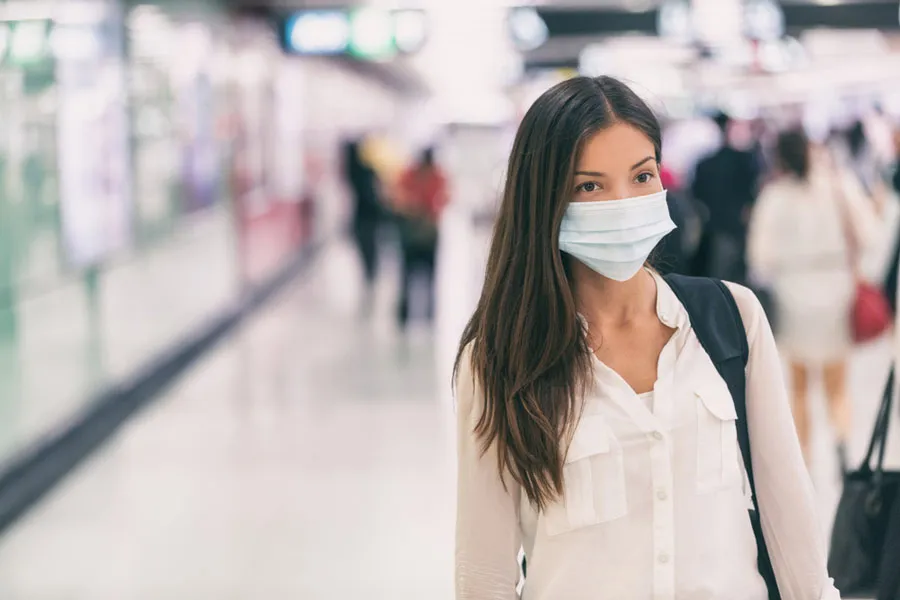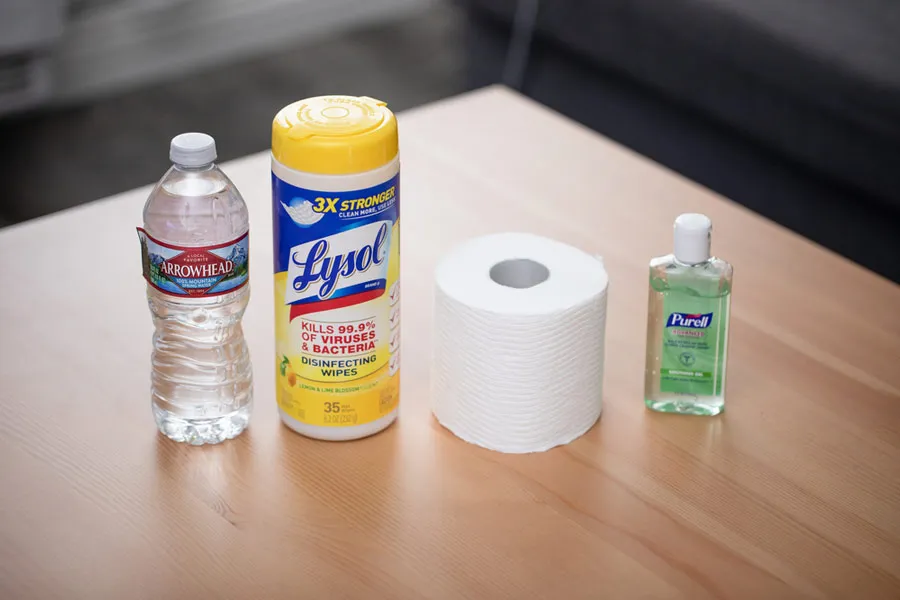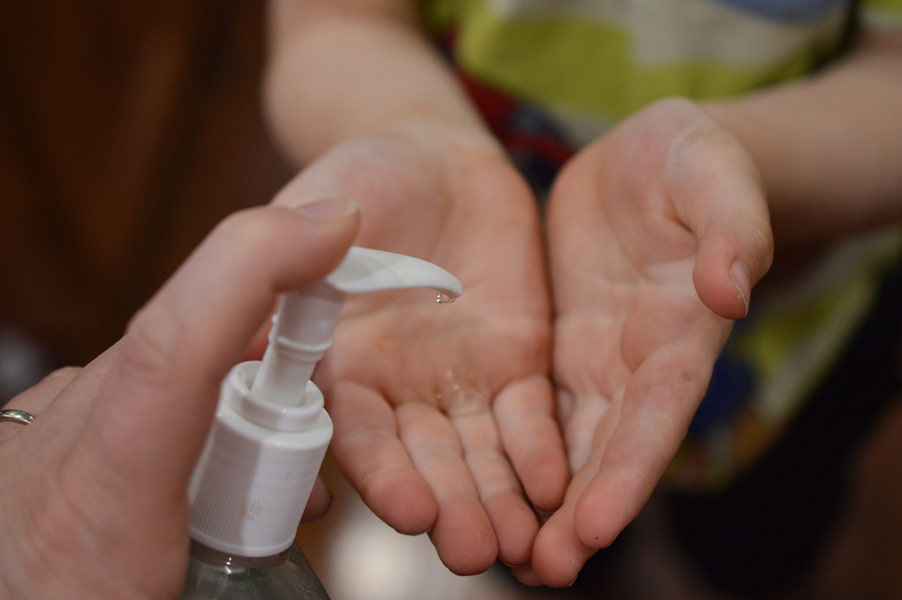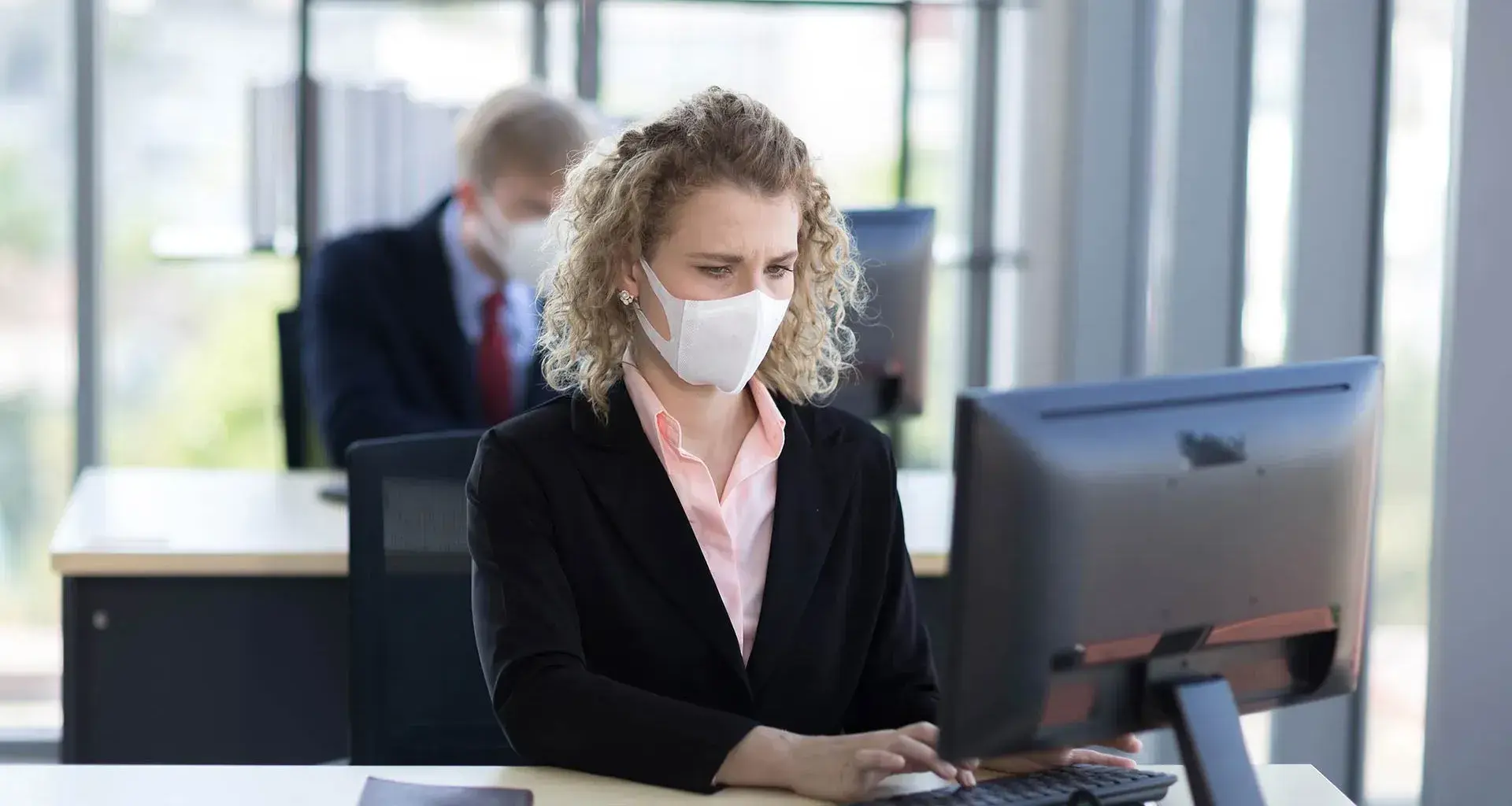CONECTA has compiled the following list of frequently asked questions about the new coronavirus which causes the COVID-19 disease:
What are coronaviruses?
Coronaviruses are a family of viruses that can cause human and animal diseases. Human coronaviruses cause ailments ranging from the common cold to more serious illnesses.
What is COVID-19?
COVID-19 is an infectious disease caused by the most recently discovered coronavirus, which originated in the city of Wuhan, China, in December 2019.
What are the symptoms?
The most common symptoms are fever, fatigue, and a dry cough. Some patients may have nasal congestion, rhinorrhea, diarrhea, or even difficulty breathing.
The symptoms tend to appear gradually and cause general discomfort. Approximately 80% of people recover without the need for specialized treatment.
What’s the difference between COVID-19 and the common cold?
It’s easy to mistake this disease for the common cold, as both can cause fever, fatigue, a dry cough, and shortness of breath. Some patients may also have nasal congestion, a sore throat, or diarrhea. The symptoms tend to be mild and appear gradually.
That’s why you should tell your doctor if you begin to feel any of these symptoms.
When do you need to go to the doctor’s?
Before going to the doctor’s, we recommend calling a trusted physician or the TecSalud Epidemiological Monitoring Unit as soon as you display any symptoms that might be caused by the coronavirus.
This is especially important if you or someone you’ve been in physical contact with recently has traveled to areas of the world where contagion rates are high, such as China, South Korea, the United States, or Europe, so that specialists can provide you with the necessary follow-up.
- TecSalud Epidemiological Monitoring Unit / Tel. 8123559928
- Email: covid19@tecsalud.mx
- WhatsApp: (81) 8888-0775
Source: CDC
How can you prevent COVID-19?
- Wash your hands frequently with soap and water for at least 40-60 seconds or use hand sanitizer containing 70% alcohol.
- Stay at home if you’re sick and seek medical attention if your symptoms get worse.
- Avoid contact with people who are sick.
- Avoid touching your eyes, nose, or mouth.
- Cover your mouth when coughing or sneezing with a handkerchief or the crook of your arm.
- Constantly clean and disinfect surfaces.
- Practice social distancing at home, keeping 1 meter away from the people you live with.
- Get vaccinated against influenza.
What’s the correct way to wash your hands?
According to the Ministry of Health, the technique for washing your hands properly is with soap and running water.
You should rub your hands together to produce foam and scrub between your fingers and under your fingernails.
Rub your hands together for approximately 40 to 60 seconds, then rinse and dry with a clean or disposable towel or a hand dryer.
We suggest you follow the steps issued by the World Health Organization for correctly washing your hands.
What’s the likelihood of contracting the virus?
The risk depends on where you are, more so if there’s been an outbreak of COVID-19 in that place.
The main way this disease spreads is through respiratory droplets expelled by someone when they cough. There’s a very low risk of someone contracting COVID-19 from someone who doesn’t display any symptoms.
However, it’s now spreading in some cities where the risk of contracting it is higher, both for the people who live in them and for those who visit them.
Health authorities are working constantly alongside governments each time a new case of COVID-19 is detected.
It’s important that we’re all informed and respect the restrictions regarding travel, movement, and concentrations of large groups of people that apply in each specific place.
Are antibiotics an effective way of combating COVID-19?
No. Antibiotics are ineffective against viruses. They’re only effective against bacterial infections when prescribed by a doctor. COVID-19 is caused by a virus, so antibiotics are of no use in this case.
Should I wear a face mask for protection?
The World Health Organization recommends wearing a face mask only if you have respiratory symptoms (coughing or sneezing), if you suspect you’ve been infected with COVID-19, or if you’re looking after someone who’s been infected.
Face masks are only effective in combination with frequent handwashing with soap and water for 40 to 60 seconds, or with a solution of 70% alcohol to 30% water.
Who runs the greatest risk of developing a serious illness?
The elderly and those suffering from arterial hypertension, heart conditions, or diabetes develop severe cases of the disease more often than others.
How deadly is COVID-19?
About 80% of people recover from the disease without the need for any special treatment. Around 1 in 6 people who contract COVID-19 develop a serious illness and have difficulty breathing.
The elderly and those suffering from underlying medical conditions, such as arterial hypertension, heart conditions, or diabetes are more likely to develop a serious illness. Approximately 2% of people who have contracted the disease have died.
Is there a vaccine against COVID-19?
To date, there is no vaccine to prevent COVID-19.
Are pregnant women at greater risk of serious illness or dying from COVID-19 compared to the public at large?
There’s no evidence from published scientific articles on the susceptibility of pregnant women to COVID-19.
Pregnant women do experience immunological and physiological changes that could make them more susceptible to viral respiratory infections, including COVID-19.
Are pregnant women with COVID-19 at greater risk of adverse outcomes during pregnancy?
There’s no information on the adverse outcomes of pregnancy for pregnant women with COVID-19.
Can pregnant women with COVID-19 transmit the virus to their fetus or newborn?
We don’t yet know whether a pregnant woman with COVID-19 can transmit the virus that causes COVID-19 to her fetus or newborn through other routes of vertical transmission (before, during, or after childbirth).
Are babies born to mothers who’ve had COVID-19 during pregnancy more at risk of adverse outcomes?
According to reports from limited cases, there have been adverse outcomes for infants (e.g. premature births) among babies born to mothers who tested positive for COVID-19 during pregnancy.
However, it’s not clear whether these results were related to maternal infection, and the risk of adverse outcomes to infants is unknown at present.
Is maternal COVID-19 infection associated with a potential risk to nursing babies?
There is no available information as to whether the virus that causes COVID-19 can be transmitted through breast milk.
Is COVID-19 more deadly to men or women?
To date, it has not been scientifically proven whether COVID-19 is more deadly to men than women.
What should I do if there are cases in my city?
If confirmed cases of COVID-19 occur in your city, the first thing you should do is:
- Keep calm and pay attention to reports and recommendations from the official authorities and the official channels of public and private health institutions.
- Frequently apply all preventive measures recommended.
- Contact your doctor if you display any symptoms.
Is it common for children to catch COVID-19?
In general, COVID-19 symptoms are slight, above all for children and young adults. However, it’s important to follow preventive measures to avoid spreading the disease.
What are the recommendations for disinfecting surfaces?
The World Health Organization recommends cleaning surfaces with common household disinfectants. Both alcohol and chlorine serve to disinfect surfaces, provided you follow the relevant recommendations.
We suggest consulting those products that have been pre-approved by the Environmental Protection Agency (EPA) which can be used for cleaning during the COVID-19 outbreak.
Is it safe to receive a package from a place where cases of COVID-19 have been reported?
Yes. There’s little likelihood of contracting the virus from having touched a package that’s been handled, transported, and exposed to different conditions and temperatures.

Can pets get infected?
The World Health Organization says that there is no evidence of pets such as cats or dogs catching the coronavirus.
Where can you get the influenza vaccine?
Go to your nearest Health Center or Family Clinic to ask for the influenza vaccine, which protects against AH1N1, H3N2, and type B type strains. The vaccine should preferably be administered to:
- Children from six months to 5 years old.
- Adults over 60 years old.
- Pregnant women.
- People of all ages who suffer from conditions such as diabetes, asthma, chronic heart, lung, and kidney conditions, cancer, hypertension, HIV/AIDS, and morbid obesity.
Are there any restrictions on traveling abroad?
It’s important to keep informed and follow the advice of local and international health authorities regarding travel, movement and events where a large number of people may be concentrated.
In some places, there are no restrictions as such, but we recommend taking the necessary precautionary measures. If it’s not necessary to travel, we recommend not doing so.
What should I do if I suspect that someone close to me has coronavirus?
If you suspect that someone is displaying the symptoms of coronavirus, it’s important to corroborate whether that person has been in contact with any confirmed or suspected case of COVID-19, or if they’ve traveled to a high-risk country. If so, please contact us as follows:
- Email: covid19@tecsalud.mx
- WhatsApp: (81) 8888-0775
What should I do if I have respiratory symptoms but don’t meet the working definition of a suspected or confirmed case?
If you haven’t been in contact with a confirmed or suspected case of COVID-19, or haven’t traveled recently to a high-risk country, contact your doctor for attention and treatment, as it’s more likely that this is another infection which is unrelated to COVID-19.

What should I do if I’ve returned from a trip to a high-risk country but don’t have any symptoms?
In order to avoid infecting anyone, those people returning from trips to countries with confirmed cases of COVID-19 should take the following preventive isolation measures for the 14 days following their return:
- Avoid greeting people close to you by shaking hands, kissing, or hugging them.
- Wash your hands regularly with soap and water for 40 to 60 seconds.
- Replace cloth hand towels frequently.
- Keep at least 1 meter away from other people in your home, especially the elderly or those with underlying conditions (hypertension, diabetes, lung and kidney diseases).
- Sleep on your own in a ventilated room.
- Limit your movements within the home, especially in shared areas.
- Ask friends, family, or delivery services to bring you food or medicine.
- Clean and disinfect surfaces you touch frequently (tables, furniture, toilet) every day with detergent and ordinary disinfectant.
- Avoid receiving social visits or going out.
- Follow the recommendations issued by official sources such as the World Health Organization or the Ministry of Health for your state or country.
- If you begin to display symptoms of a respiratory disease, don’t self-medicate and contact your doctor.

What’s TecSalud’s plan of action in the event of an emergency?
TecSalud hospitals have assembled response teams of trained doctors and nurses.
If patients need to be admitted, TecSalud hospitals have specially prepared negative-pressure rooms in order to contain and treat these patients.
If patients don’t meet the criteria for admission, they’re sent home with treatment for their symptoms and Ministry of Health authorities are notified for case follow-up.
TecSalud, Tecnológico de Monterrey’s health system, has been in constant communication and coordination with the health authorities on this subject.
What steps did Tec de Monterrey take after the COVID-19 pandemic announcement?
The Tec has been working in coordination with different committees that have developed and implemented action plans for addressing this health issue.
These committees have been assessed by a TecSalud medical team consisting of epidemiologists and infectious disease specialists.
What’s more, Tecnológico de Monterrey has decided to take the following steps due to the international spread of the COVID-19 coronavirus.
1.- Onsite classes have been canceled at high school, undergraduate, and postgraduate levels as of Tuesday March 17 and virtual programs started for online academic continuity as of Monday 23.
2.- All academic and student events at the different campuses in Mexico have been suspended until further notice.
3.- Students living in halls of residence will remain in these or may return to their homes in order to follow courses online. Everybody has been told to follow the prevention and protection measures that we will be announcing at all times.
4.- The need for these measures to continue will be reevaluated during the Holy Week recess and any decision will be announced promptly through our official channels.
We suggest you follow the recommendations of the World Health Organization as regards social isolation measures to prevent the spread of COVID-19:
- Avoid receiving social visits, going out, and going to social events (concerts, stadiums, shopping malls, get-togethers with a large number of people).
- Practice social distancing, which consists of staying at least 1 meter away from other people.
- Wash your hands regularly with soap and water for 40 to 60 seconds.
- Use an alcohol-based hand sanitizer containing 70% alcohol.
- Use respiratory etiquette: cover your mouth and nose by coughing or sneezing into the crook of your arm and then wash your hands.
Follow the recommendations issued by official sources such as the World Health Organization or the Ministry of Health for your state.
“We’re all responsible for our health, so I urge you to follow the basic prevention measures for preventing the rapid spread of COVID-19”, said Dr. Michel Fernando Martínez, head of the TecSalud Epidemiological Monitoring Unit.
“As a preventive measure, it’s of the utmost importance to avoid very busy areas to prevent the rapid spread of COVID-19,” he added.
ALSO READ:





